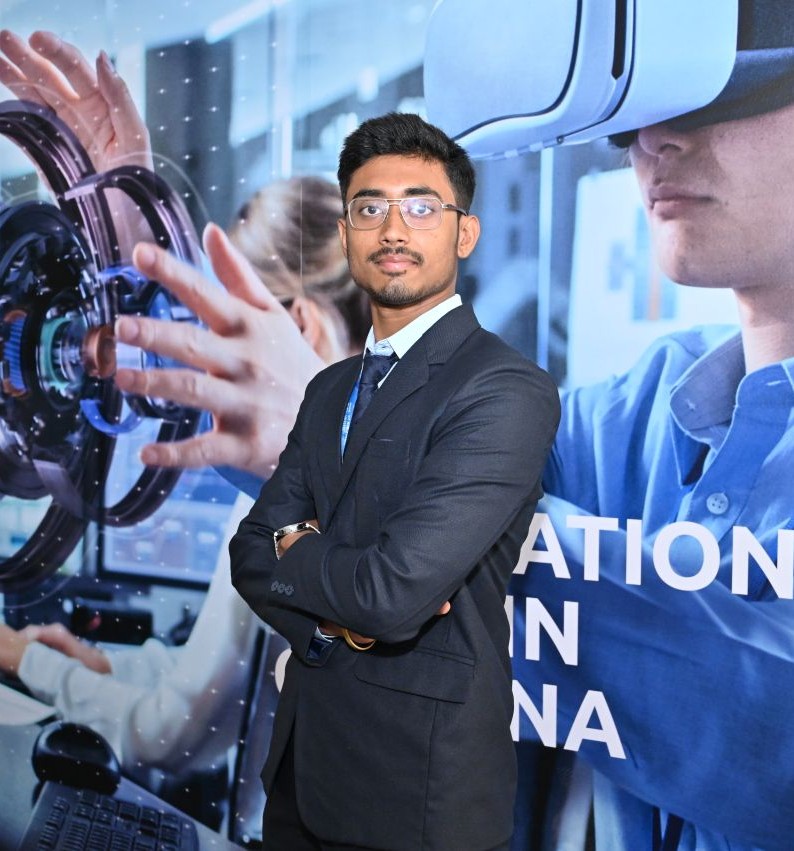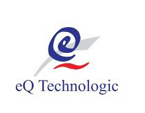B.Tech Computer Science and Engineering (Artificial Intelligence and Data Science)
Programme Overview
The B.Tech in Computer Science and Engineering (Artificial Intelligence & Data Science (AI & DS)) programme at MIT-WPU is designed to equip students for the dynamically changing world. This programme helps you in addressing some of the most complex global challenges across industries such as healthcare, finance, curated monitoring, and quality assurance.
By learning advanced technologies like big data analytics, deep learning, cognitive computing, and data visualisation, you'll gain the expertise needed to drive data-based decision-making effectively.
The programme offers specialisations in futuristic domains such as AI in Healthcare, Extended Reality, and Computational Intelligence, keeping you ahead in the competitive industry. With hands-on experience through industry internships, expert lectures, and research projects, you'll be prepared to apply your skills in real-world scenarios and excel in the ever-demanding tech market.
Major Tracks
- Systems and Edge Computing
- Extended Reality
- Business Analytics
- Computational Intelligence
Duration & Fees
Duration
4 Years
Last Date to Apply : 15 April 2026
Fee Per Year
₹ 4,10,000
Scholarship
| Scholarship for AY 2026-27 | JEE Main Percentile | MH-CET Percentile |
|---|---|---|
|
Dr. Vishwanath Karad Scholarship (100%) |
97 & Above |
98 & Above |
|
MIT-WPU Scholarship I (50%) |
96 & Above |
97 & Above |
|
MIT-WPU Scholarship II (25%) |
95 & Above |
96 & Above |
Note: Best of JEE 2026 or MHT-CET 2026 Score will be considered for availing the scholarship.
Terms & Conditions Apply:
- All Scholarships are awarded on a First Come First Serve basis. All Scholarships are awarded as fee adjustments.
- To continue the scholarship for the entire duration of the programme, a minimum level of the academic score has to be maintained at an 8 CGPA across all semesters, attendance is to be maintained at a minimum of 80 percent, with no live backlogs in any subject/programme and no semester break, and there should be no disciplinary action against the student.
For more detailed information visit our website: https://mitwpu.edu.in/scholarships
Eligibility
A minimum of 50% aggregate marks in Class 10+2/ HSC, with English as a compulsory subject and A minimum of 50% aggregate marks in any one of the following subject groups:
- PCM (Physics, Chemistry, Mathematics),
- Physics & Mathematics with any Technical Vocational Subject
- PCB* (Physics, Chemistry, Biology*),
[*Biology/Biotechnology is applicable only for the Bioengineering Programme.] (Minimum 45% aggregate marks for candidates belonging to the Reserved Category from Maharashtra State).
OR
A minimum 60% aggregate marks in a Diploma in Engineering & Technology in a relevant branch from a government-approved technical board.
Selection Process
Admissions are based on the scores of JEE 2026/ MHT-CET 2026/ PERA-CET 2026, or MHT-CET-B* 2026/ NEET 2026* (*applicable only for the Bioengineering programme), along with a 500-word Statement of Purpose (SOP) written by the candidate
Programme Highlights
- Innovative Curriculum : The curriculum is always up to date and includes the emergent modern technologies such as Artificial Intelligence, Machine Learning and Data Science
- World Class Laboratories : Get hands-on experience using NVIDIA RTX A6000 GPUs, AIoT SerBot Prime X Robots, and other high-end equipment.
- Industry Collaboration : Work at top companies like TCS, Capgemini, Volkswagen, etc., through industry collaboration.
- Comprehensive Growth : Benefit from vibrant student chapters like the Association for Computing Machinery (ACM) Club, Computer Society of India (CSI) & the Institute of Electrical and Electronics Engineers (IEEE) with exciting activities for both academic and co-curricular advancement.
- National and International Programmes : Get global exposure through rural, national and international immersion programmes.
Programme Structure
| Semester | Course Type | Course Name/Course Title | Total Credits |
|---|---|---|---|
|
I |
UC |
Indian Constitution |
1 |
|
I |
UC |
Environment and Sustainability |
1 |
|
I |
UC |
Yoga - I |
1 |
|
I |
UC |
Social Leadership Development Program |
1 |
|
I |
UC |
Financial Literacy |
1 |
|
I |
PF |
Linear Algebra and Differential Calculus |
3 |
|
I |
PF |
Engineering Physics |
3 |
|
I |
PF |
Basics of Electrical Engineering |
4 |
|
I |
PF |
Engineering Mechanics |
3 |
|
I |
PF |
Programming and Problem Solving |
3 |
|
I |
Program Capstone Project/Seminar and Internships |
Python Programming |
1 |
|
|
Total Credits: |
22 |
| Semester | Course Type | Course Name/Course Title | Total Credits |
|---|---|---|---|
|
II |
UC |
Yoga - II |
1 |
|
II |
UC |
Co-creation |
1 |
|
II |
UC |
AI for everyone |
2 |
|
II |
UC |
Foundation of Peace |
2 |
|
II |
UC |
Indian Knowledge System (General) |
2 |
|
II |
UC |
Sports |
1 |
|
II |
PF |
Integral Calculus |
3 |
|
II |
PF |
Basics of Electronics Engineering |
3 |
|
II |
PF |
Digital Electronics |
4 |
|
II |
PF |
Engineering Chemistry |
3 |
|
|
Total Credits |
22 |
| Semester | Course Type | Course Name/ Course Title | Total Credits |
|---|---|---|---|
|
III |
UC |
Spiritual and Cultural heritage: Indian Experience |
2 |
|
III |
UC |
Research Innovation Design Entrepreneurship (RIDE) |
1 |
|
III |
UE |
University Electives - I |
3 |
|
III |
PF |
Calculus and Numerical Methods |
3 |
|
III |
PF |
Data Structures and Algorithms |
3 |
|
III |
PM |
Electrical Machines |
3 |
|
III |
PM |
Power Systems and Protection |
4 |
|
III |
PF |
Renewable Energy Systems |
3 |
|
|
Total Credits: |
22 |
| Semester | Course Type | Course Name/ Course Title | Total Credits |
|---|---|---|---|
|
IV |
UC |
Rural Immersion |
1 |
|
IV |
University Core |
Life Transformation Skills |
1 |
|
IV |
University Electives |
University Electives - II |
3 |
|
IV |
Program Foundation |
Discrete Mathematics and Basic Statistics |
3 |
|
IV |
Program Major |
Advanced Electrical Machines |
4 |
|
IV |
Program Major |
Analog Circuits and Applications |
3 |
|
IV |
Program Major |
Computer Organizations and Operating Systems |
3 |
|
IV |
Program Major |
Control Systems |
3 |
|
IV |
Program Capstone Project/ Seminar and Internships |
Object Oriented Programming |
1 |
|
|
Total Credits: |
22 |
| Semester | Course Type | Course Name/Course Title | Total Credits |
|---|---|---|---|
|
V |
UC |
Managing Conflicts Peacefully: Tools and Techniques |
2 |
|
V |
UE |
University Electives - III |
3 |
|
V |
PE |
Program Elective - I |
4 |
|
V |
PM |
Communication Networks |
3 |
|
V |
PM |
Power Electronics |
4 |
|
V |
PM |
Database Management Systems |
2 |
|
V |
PM |
Microcontrollers and Applications |
3 |
|
V |
PM |
Data Science |
1 |
|
|
Total Credits: |
22 |
| Semester | Course Type | Course Name/Course Title | Total Credits |
|---|---|---|---|
|
VI |
UC |
National Academic Immersion Program |
2 |
|
VI |
PE |
Program Elective - II |
4 |
|
VI |
PM |
Robotics and Automation |
3 |
|
VI |
PM |
Electric Vehicle Technology |
4 |
|
VI |
PM |
Artificial Intelligence and Machine Learning |
4 |
|
VI |
PM |
Smart Grid Systems |
4 |
|
VI |
Program Capstone Project/Seminar and Internships |
Power Quality and Smart Metering |
1 |
|
|
Total Credits: |
22 |
| Semester | Course Type | Course Name/Course Title | Total Credits |
|---|---|---|---|
|
VII |
PE |
Program Elective - III |
4 |
|
VII |
Program Capstone Project/Seminar and Internships |
Capstone Project |
12 |
|
|
Total |
16 |
| Semester | Course Type | Course Name/Course Title | Total Credits |
|---|---|---|---|
|
VIII |
Program Electives |
Program Elective - IV |
4 |
|
VIII |
Program Capstone Project/Seminar and Internships |
Internship |
13 |
|
|
Total |
17 |
Career Prospects
Software Developers
Data Scientists
AI/ML Developer
Business Intelligence Developer
Machine Learning Engineer
AI Research Scientist
Programme Outcomes
- Leverage the strengths of AI, machine learning, and data science techniques along with deep foundations in computer science and engineering principles to create new solutions for real-world problems.
- Design, Build and implement solutions in AI, ML, and Data Science with societal, environmental, and ethical considerations.
- Make data-informed decisions and gain insights utilising data-driven procedures and tools like Python, R, Tensorflow, etc.
- Research and develop new methodologies to provide solutions to challenges in business or engineering.
Placements & Recruiters
100% Placement Assistance
Top Recruiters
FAQs
AI & DS or Artificial Intelligence and Data Science and helps in analysing huge amounts of data to extract useful insights and patterns. The core areas in the curriculum are structured to contain a blend of theoretical and application-based studies. You will learn machine learning, data mining, AI algorithms, and deep learning, which are core areas of modern AI technologies. The programme also covers big data analytics, IoT, Blockchain, and AR/VR as special topics where you will have practical exposure in Python programming, etc.
Yes, students can work on industry-oriented projects extensively. Benefit from real-life experience by collaborating with leading companies on current business challenges. You can use these projects to utilise the theoretical part that you have learned in your academic phase into some real-life solutions such as creating a machine learning model, working on big data analytics, and many more IoT solutions.
Yes, you can pursue M. Tech or MS in niche areas, such as AI, Data Science, and Computer Science, after completing the undergraduate programme. Pursuing higher studies will enable you to specialise in either AI or data science and provide suitable avenues for research, development, or academic positions.
When it comes to technology fields such as AI and Data Science, MIT-WPU provides a supportive environment with great mentorship for aspiring professionals. Following are the top reasons to pursue the programme:
Cutting-Edge Curriculum
With an undergraduate programme in CSE (B.Tech CSE), you get introduced to AI, Data Science, Machine Learning, Blockchain etc.
Hands-on Learning
You will get hands-on projects, internships and industry collaborations involving the latest technologies in AI and IoT.
Industry-Ready Skills
This programme imparts high-demand skills in Cyber Security, Software Development, and Computer Vision, making you job-ready for multiple tech roles.
International Exposure and Assistant in Career
We give you 100% internship support, exposure to the world of industry and technical expertise with connections with alumni at various levels to give you the boost that you need in your career.
Entrepreneurial Mindset
There are many supports to kick start your own venture like the MIT-WPU technology business incubator (TBI), which supports funding, mentorship & Networking.
The ‘Oxford of Pune’
Being in Pune — a city known for its innovation, MIT-WPU allows you the opportunity to collaborate with the global network and industry leaders.



















 admissions@mitwpu.edu.in
admissions@mitwpu.edu.in
